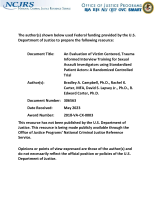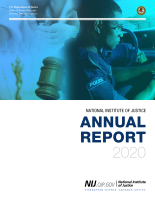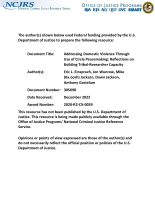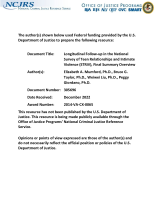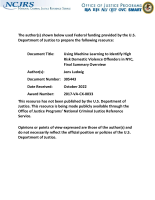Violence against Women
Improving the Forensic Documentation of Injuries Through Alternate Light: A Researcher-Practitioner Partnership
Considering domestic violence victims: Exploring victim-related factors in prosecutor case summaries
National Institute of Justice Annual Report 2020
NIJ FY23 Research and Evaluation on Violence Against Women
UAA Research on Violence Against Women
Sexual Violence in Alaska
Overview of UAA Justice Center Violence against Women Research
Campus Sexual Assault Responses (CSAR): Informing Trauma-Informed Policies, Protocols, and Training
Sexual violence is a significant criminal justice problem with long-term effects for its victims. In particular, sexual assault on or related to college campuses across the United States presents a growing public health and economic burden, starting with significant impacts on academic outcomes.
See the YouTube Terms of Service and Google Privacy Policy
Gender-Based Violence and the Latinx Community
See the YouTube Terms of Service and Google Privacy Policy
Economic Justice for Survivors of Intimate Partner Violence
See the YouTube Terms of Service and Google Privacy Policy


